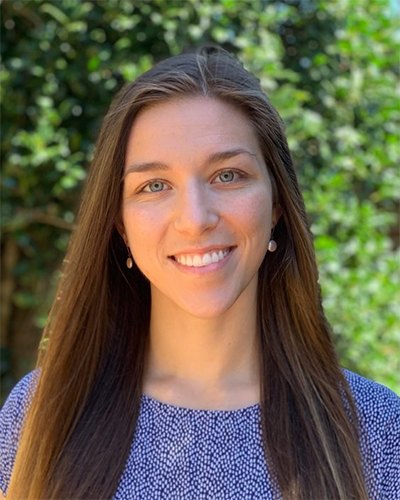CHRISTINA POOL
CAPSTONE
Capstone Project Committee: Rebecca Spillman, M.S., CGC; Lauren Doyle, MGC, CGC; Debra Keelean-Fuller, M.S., CGC; Rachel Mills, M.S., CGC
Approximately 25-30 million individuals in the United States live with undiagnosed medical conditions (UMC), many of which present in childhood. While formal recommendations for the transition from pediatric to adult healthcare exist for the general pediatric patient, none currently exist for individuals experiencing symptoms related to a UMC at the time of their transition to adult healthcare. As such, these individuals must navigate their transition to adult healthcare without clear, structured guidance. There is a paucity of literature on the experiences of individuals with UMC, particularly as they make the transition from pediatric to adult healthcare. Where this literature does exist, it often explores the perspectives of parents of children with UMC or adults with UMC who began experiencing symptoms in adulthood. First-hand experiences of those with chronic UMC spanning from childhood to adulthood have not yet, to our knowledge, been explored. A semi-structured interview was designed to explore the experiences of individuals with UMC during their transition from pediatric to adult healthcare. Seven adult individuals without cognitive impairment were recruited through an Undiagnosed Diseases Network (UDN) clinical site and interviewed over the telephone. Inductive and cross-case analysis of the interviews revealed five major themes – the diagnostic odyssey, being different, adapting, transition, and advice – each of which were further divided into sub-themes. These themes are consistent with the limited literature available describing the diagnostic odyssey and impacts of chronic medical conditions on individuals and families. Findings from this study add to the understanding of individuals’ experiences with chronic UMC as they transition to adult healthcare. Understanding these patients’ perspectives may be helpful in the provision of the highest quality healthcare for all patients, including those with the most need and particularly those with UMC.
Since Graduation
Christina graduated summa cum laude from Indiana University of Pennsylvania (IUP) in May 2017. During her junior year she was introduced to the field of genetic counseling. In the year between undergraduate and graduate studies, Christina worked as a genetic counseling intern in both prenatal and cancer settings.
She also volunteered as a hospital response advocate for victims of sexual and domestic abuse. Since graduating from UNCG, Christina has relocated -with her dog Samoa -to Manhattan, KS to be with her husband Corey.
Since arriving in Manhattan, Christina has earned her ABGC certification, the Pools have added another puppy (Riley) to the family, and Christina completed her first marathon on October 17. She is preparing to present her capstone at NSGC this fall and will begin her career as a genetic counselor at Fullerton in Asheville, NC.
